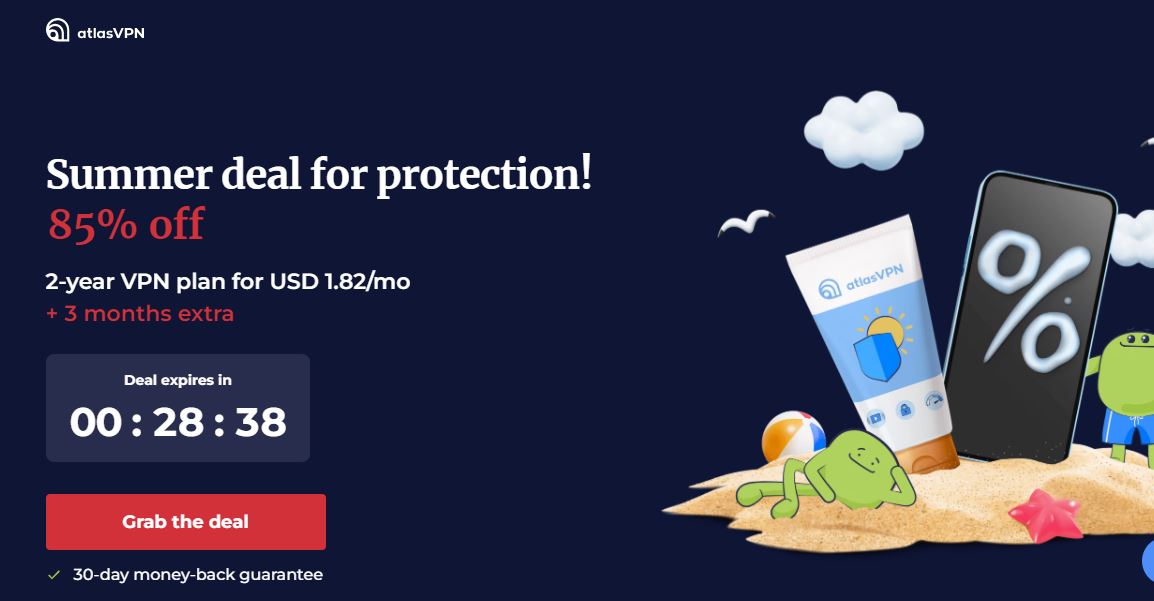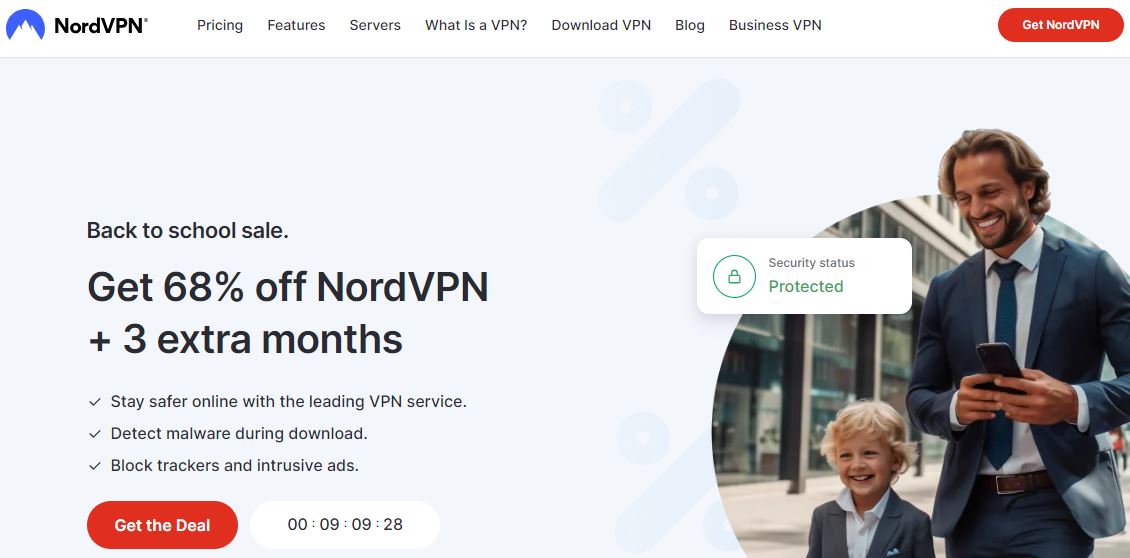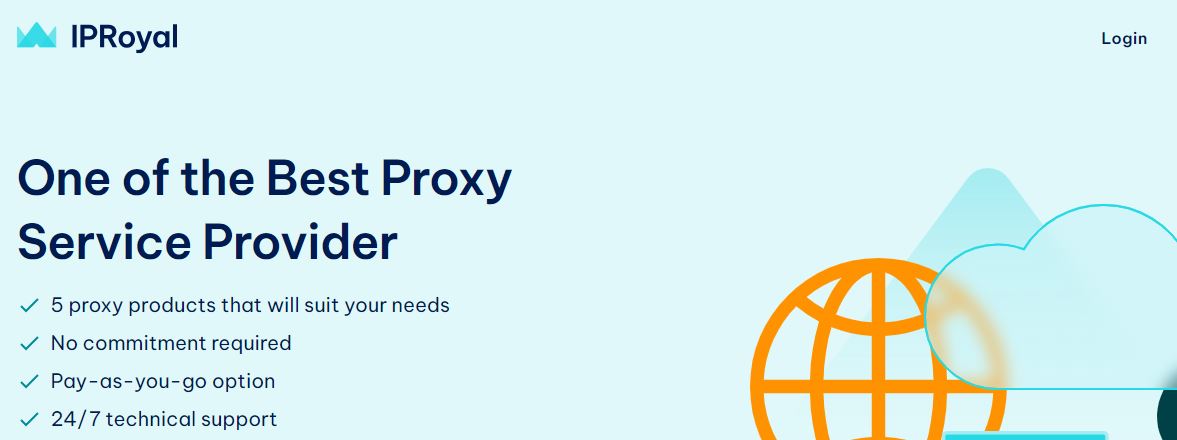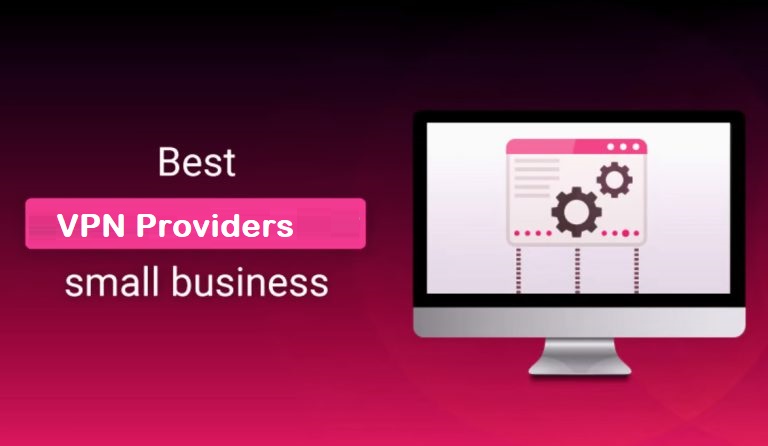
Top 5 Best VPN Providers In Finland
- Post author riazqadeer90
- Post date August 22, 2023
VPN (Virtual Private Network) services play a crucial role in enhancing online privacy, security, and accessibility in Finland. As a technologically advanced and digitally connected country, Finland’s citizens and businesses often rely on the internet for various activities, from online banking and shopping to communication and remote work. However, with increased online activities, the need for safeguarding sensitive information from cyber threats becomes paramount. VPNs offer a solution by encrypting internet traffic, making it virtually impossible for hackers, ISPs, or government entities to intercept and decipher users’ data. This is particularly relevant in Finland, where citizens value their online privacy rights and the protection of personal information.
Furthermore, VPNs enable access to geo-restricted content and services, allowing users to bypass regional limitations. In Finland, this is especially useful for accessing content from other countries that might be otherwise inaccessible due to licensing restrictions. For instance, with a VPN, Finnish users can connect to servers located in different countries and enjoy streaming services, websites, and online platforms as if they were physically present in those regions. This adds an extra layer of convenience for travelers, expatriates, or anyone interested in exploring global online content.
Table of Contents
List of Best VPN Providers in Finland
VPN services have become indispensable tools for individuals, businesses, and travelers in Finland, addressing their concerns about online privacy, security, and content accessibility. With a technologically advanced population that values its digital rights, VPN providers such as NordVPN, ExpressVPN, CyberGhost, PrivateVPN, and Surfshark have recognized the need to offer servers in Finland.
- Price as low as $1 month
- Unlimited devices
- MultiHop servers
- 10Gbps servers
- 24/7 hours support
- Price as low as $1 month
- Unlimited Devices
- Stay safe with NordVPN
- Double VPN
- 24/7 hours support
- Price as low as $1 month
- GPS Location Changer
- Compatible with All iOS
- Fast & Secure VPN
- 24/7 hours support
- Price as low as $1 month
- No commitment required
- Pay-as-you-go option
- 190+ proxy locations
- 24/7 hours support
VPNs have emerged as the go-to solution. As technology continues to evolve, VPN services will likely remain a crucial element in Finland’s digital landscape, safeguarding its citizens’ online interactions and enabling them to explore the internet without limitations.
Here are some best VPN providers in Finland.
1- Atlas VPN
Atlas VPN is a Virtual Private Network (VPN) service that aims to provide online privacy, security, and access to geo-restricted content for its users. While I don’t have real-time information past my last update in September 2021, I can provide you with a general overview of Atlas VPN based on the information available up to that point.
When considering a VPN provider, it’s essential to look at factors such as the number and location of servers, the level of encryption and security provided, the user interface and ease of use, customer support, and the company’s privacy policy. Always make sure to research the most up-to-date information and user reviews before making a decision about which VPN service to use.
Make sure to consider factors such as:
Privacy and Encryption: Like most VPNs, Atlas VPN likely offered encryption protocols to secure users’ internet connections, protecting their data from potential eavesdropping and hacking attempts.
Server Network: VPNs operate by routing your internet traffic through their servers, and Atlas VPN would have likely offered a network of servers across various locations. The ability to connect to servers in different countries allows users to access content that might be geo-restricted in their own region.
Anonymity: VPNs can hide users’ IP addresses, making it more difficult for websites, advertisers, and even internet service providers to track online activities.
Security: VPNs can add an extra layer of security when using public Wi-Fi networks by encrypting the connection and preventing unauthorized access to your data.
Geo-Blocking Bypass: VPNs like Atlas VPN enable users to access content and services that might be restricted in their country due to geographical limitations. This can be particularly useful for accessing streaming services or websites not available in your location.
Mobile Apps: Many VPN providers offer dedicated apps for various devices, including smartphones and tablets, allowing users to protect their online activities on the go.
2- NORD VPN
NordVPN is one of the most well-known and widely used Virtual Private Network (VPN) services available. As of my last update in September 2021, here’s an overview of NordVPN and its features:
NordVPN Features:
Secure and Encrypted Connection: NordVPN uses AES-256 bit encryption, considered one of the most secure encryption methods available. This ensures that your internet traffic is encrypted and protected from potential eavesdroppers and hackers.
Large Server Network: NordVPN boasts a vast network of servers in over 60 countries. This extensive server network allows users to choose from a wide range of locations for their connections, improving speed and enabling access to geo-restricted content.
No-Logs Policy: NordVPN has a strict no-logs policy, meaning they do not collect or store any logs of your online activities. This commitment to privacy enhances user anonymity.
Double VPN: This feature routes your internet traffic through two separate VPN servers, adding an extra layer of encryption and security.
CyberSec: NordVPN’s CyberSec feature helps block malicious websites, prevent phishing attacks, and also blocks ads and trackers, enhancing your overall online security and experience.
Kill Switch: The kill switch feature automatically disconnects your internet connection if your VPN connection drops. This prevents your data from being exposed if your VPN connection becomes unstable.
Obfuscated Servers: These servers are designed to bypass VPN blocking and censorship, allowing users to access the internet freely, even in regions with strict internet regulations.
Streaming and Torrenting Support: NordVPN is known for its ability to unblock streaming platforms like Netflix, Hulu, and more, allowing users to access content from different regions. Additionally, it supports torrenting on dedicated servers.
User-Friendly Apps: NordVPN provides user-friendly apps for various devices, including Windows, macOS, Android, and iOS, making it easy to connect to VPN servers.
24/7 Customer Support: NordVPN typically offers round-the-clock customer support through live chat and email, helping users with any issues they might encounter.
Multi-Device Support: With a single NordVPN account, you can secure up to 6 devices simultaneously, allowing you to protect your entire digital ecosystem.
NordVPN boasts a vast network of servers located in numerous countries around the world. This extensive server network enables users to access content from different regions and helps improve connection speeds by allowing them to connect to the server that’s closest to them.
3 - Itool Paw iGPSGo
Virtual Private Networks (VPNs) are applications designed to conceal your online activities from entities such as your Internet Service Provider (ISP), government agencies, and potential hackers. In straightforward terms, they achieve this by employing encryption to secure all of your data traffic and directing it through their own distributed servers positioned worldwide, effectively concealing your true geographical location in the process.
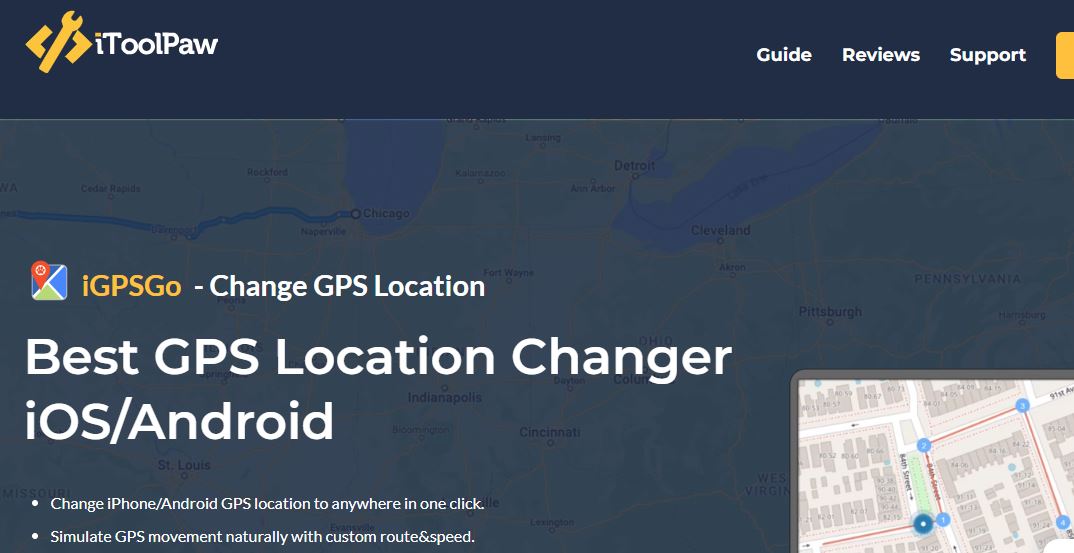 For those seeking quick recommendations on the top three VPN services in 2023, consider selecting ExpressVPN, NordVPN, or Surfshark from the list below. In our comprehensive evaluations, we have ranked these three options as the finest in their respective price categories. However, if you desire a more comprehensive understanding, continue scrolling to discover our breakdown of the ten leading VPNs available in the current market. You’ll also find details about our VPN testing methodology at the conclusion of this page.
For those seeking quick recommendations on the top three VPN services in 2023, consider selecting ExpressVPN, NordVPN, or Surfshark from the list below. In our comprehensive evaluations, we have ranked these three options as the finest in their respective price categories. However, if you desire a more comprehensive understanding, continue scrolling to discover our breakdown of the ten leading VPNs available in the current market. You’ll also find details about our VPN testing methodology at the conclusion of this page.
Strong Encryption: Utilizes AES-256 encryption, one of the most secure encryption methods available, to protect your data from potential eavesdroppers.
Large Server Network: Offers servers in over 90 countries, allowing users to choose from a wide range of locations for their connections.
No-Logs Policy: ExpressVPN has a strict no-logs policy, meaning it does not collect or store any logs of your online activities, ensuring your privacy.
High-Speed Connections: Known for its consistently fast connection speeds, making it suitable for streaming, gaming, and data-intensive activities.
Kill Switch: Includes a kill switch that halts internet traffic if the VPN connection drops, preventing data exposure.
Split Tunneling: Allows users to route specific apps or traffic through the VPN while leaving the rest of the traffic to use the regular internet connection.
TrustedServer Technology: Uses RAM-only servers to enhance security by not storing any data on the server’s hard drive.
Streaming and Geo-Bypassing: Capable of unblocking geo-restricted content on various streaming platforms, such as Netflix, Hulu, and more.
User-Friendly Apps: Provides user-friendly apps for multiple devices, including Windows, macOS, Android, iOS, and more.
Customer Support: Offers 24/7 customer support through live chat and email to assist users with any issues they may encounter.
Multi-Device Support: Allows users to protect up to five devices simultaneously with a single subscription.
Router Compatibility: Supports installation on routers, enabling protection for all devices connected to the network.
DNS Leak Protection: Prevents DNS leaks that could potentially reveal your browsing activity to third parties.
Virtual Server Locations: Some server locations are virtual, which means they are physically located in one country but appear to be in another, aiding privacy and bypassing restrictions.
4- IPRoyal VPN
A Virtual Private Network (VPN) is a technology that enables users to create a secure and encrypted connection to a private network over the internet. This is commonly used for enhancing online privacy and security, as well as bypassing geo-restrictions and censorship.
Privacy and Logging: A good VPN should have a clear privacy policy and not keep logs of your online activities.
Security: Look for VPNs that use strong encryption protocols to secure your data.
Server Locations: The number and distribution of servers can impact the VPN’s performance and ability to bypass geo-restrictions.
Speed: Some VPNs can slow down your internet connection. Opt for a VPN with good speeds if you need to stream or download content.
Ease of Use: A user-friendly interface and easy setup can make your VPN experience more enjoyable.
Device Compatibility: Make sure the VPN is compatible with the devices and operating systems you use.
Customer Support: Reliable customer support can be crucial if you encounter any issues with the VPN service.
Price: VPN services can vary greatly in terms of pricing. Free VPNs might have limitations or privacy concerns, so it’s often worth investing in a reputable paid service.
Before choosing a VPN, it’s a good idea to read reviews, compare different options, and understand the features they offer. Also, be cautious about using VPN services that are relatively unknown, as some less reputable providers might compromise your online security and privacy.
VPN Pros And Cons
Certainly, here are some pros and cons of using a Virtual Private Network (VPN):
Pros:
Enhanced Privacy and Security: VPNs encrypt your internet traffic, making it difficult for hackers, ISPs, and other third parties to monitor your online activities. This is especially important when using public Wi-Fi networks, which are vulnerable to cyberattacks.
Anonymous Browsing: When you connect to a VPN server, your real IP address is hidden. This makes it harder for websites and online services to track your online behavior and location.
Bypass Geo-Restrictions: VPNs allow you to access content that might be restricted or blocked in your region due to censorship or licensing agreements. By connecting to a server in a different location, you can appear as if you’re browsing from that location.
Secure Remote Access: Businesses often use VPNs to provide remote employees with secure access to internal networks, ensuring that sensitive data remains protected.
Avoid Throttling: Some ISPs throttle (slow down) internet connections for certain activities, such as streaming. Using a VPN can sometimes help you bypass these restrictions and maintain better speeds.
Protect Personal Information: VPNs can be useful for protecting your personal information when shopping online or accessing sensitive accounts while connected to public Wi-Fi.
Anonymous Torrenting: For users who engage in torrenting, a VPN can help keep their activities private and prevent legal issues related to copyright infringement.
Cons:
Reduced Speed: While a VPN encrypts your traffic, it can also result in slower internet speeds due to the added processing and the distance to the VPN server. This can be an issue for tasks that require high bandwidth, such as streaming or online gaming.
Cost: Many reliable VPN services are not free. Quality VPNs often require a subscription fee, which might not be affordable for everyone.
Trust in Provider: When using a VPN, you’re trusting the VPN provider with your data. It’s important to choose a reputable provider with a clear privacy policy and a no-logs policy to ensure your data isn’t being mishandled or sold.
Complexity: Setting up and using a VPN might require some technical knowledge, which could be challenging for less tech-savvy users.
Blocked Services: Some online services are actively blocking VPN traffic to prevent users from bypassing geo-restrictions. This means that not all websites or services will work when using a VPN.
Legal and Ethical Concerns: While VPNs have legitimate uses, some individuals use them for illegal activities, such as hacking or accessing pirated content. Make sure to use a VPN responsibly and within the boundaries of the law.
False Sense of Security: While VPNs provide encryption and privacy, they don’t make you completely invulnerable. You still need to be cautious about phishing attacks, malware, and other online threats.
In conclusion, VPNs offer a range of benefits, particularly in terms of privacy and security. However, they also have limitations and potential downsides that users should be aware of. It’s important to weigh the pros and cons based on your individual needs and priorities when deciding whether to use a VPN.
Conclusion:
A Virtual Private Network (VPN) is a technology that enables users to establish secure and encrypted connections over the internet, providing a range of benefits. One of the primary advantages of using a VPN is enhanced privacy and security. By encrypting internet traffic, VPNs prevent unauthorized access to sensitive data, safeguarding users from potential hackers and malicious actors. Additionally, VPNs hide users’ real IP addresses, making it challenging for websites and online services to track their online activities and locations. This feature not only preserves anonymity but also allows users to bypass geo-restrictions, accessing content that might be otherwise unavailable in their region.
However, there are also some downsides to using VPNs. While encryption enhances security, it can lead to reduced internet speeds due to the additional processing required. Moreover, premium VPN services often come with a cost, requiring users to subscribe to access higher-quality services. Trusting a VPN provider is essential since they handle users’ data; selecting a reputable provider with transparent privacy policies is crucial. Additionally, VPNs might not work with all online platforms, as some services actively block VPN traffic to prevent users from bypassing restrictions. As with any technology, users must also be aware of legal and ethical considerations and use VPNs responsibly within the boundaries of the law.
- Categories Top Best VPN Providers





